-
-
- Bridging Scales from Below: The Role of Heterogeneities in the Global Water and Carbon Budgets
- Increasing Occurrences of Cyanobacterial Blooms Driven by Climate Change Factors
- Carbon Capture and Utilization
- Integrated Coastal-Inland Flood Model for Climate Change
- Pathways for Sustainable and Climate-Resilient Planning of Water-Energy-Food Security Nexus
-
- Air Quality and Health: A Paradigm Shift
- Surface Water Quality and Emerging Contaminants
- Microbial detoxification of persistent organohalide pollutants (POPs)
- Nutrients Removal in Waterbodies via Sustainable Pathways
- Centre for Water Research (CWR) researchers join their forces with U of T researchers for microplastics pollution detection and control in water and wastewater
- Dealing with Hard-To-Treat Industrial Wastewater
- Valorization of Bioresources – Towards a Circular Economy
-
- Intelligent Traffic Diffusion Plan Generation, Effective Assessment and Dissemination Strategies
- Transforming Waste into Resources for Infrastructural Development
- Look-Ahead Integrated Geophysical Investigation System (IGIS) for Singapore Tunnels
- Next-Generation Airport Pavements with Full-Scale Instrumented Testing
-
- Centre for Advanced Materials and Structures (CAMS)
- Centre for Hazards Research (CHR)
- Centre for Resilient Underground Infrastructure and Engineering (CRUISE)
- Centre for Transportation Research (CTR)
- Centre for Water Research (CWR)
- Centre for Resource Circularity and Resilience (CR)2
- Centre for Offshore Research and Engineering (CORE)
- Centre for Environmental Resilience (CES)
- Safety & Health Committee
- Completed Research Projects
- Research Brief
- Achievements (in the media)
Microbial detoxification of persistent organohalide pollutants (POPs)
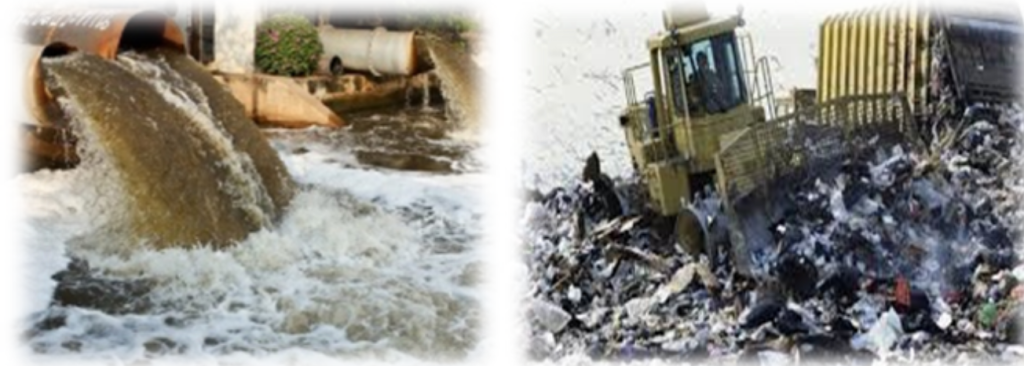
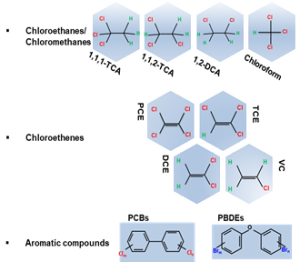
Persistent organohalide pollutants (POPs) are widely used in industrial and agricultural areas. The inappropriate disposal of these pollutants results in severe contamination in surface water, groundwater, soils and sediments. Long term exposure to organohalide pollutants has been linked to human diseases in liver, kidneys, reproductive, nervous and immune systems. The goal of our projects is to cultivate and characterize cultures capable of detoxify these pollutants in tandem with state of the art -omics tools to provide a sustainable and economical solutions to POPs contamination.'
Anaerobic bacteria play a critical role in bioremediation of halogenated compounds in the environment. Novel bacteria are characterized to be capable of dehalogenating polychlorinated biphenyl (PCBs), polybrominated diphenyl ether (PBDEs), and chlorinated solvents. Employing a combination of traditional culturing techniques and -omics technology, we identified an array of unique functional reductive dehalogenase genes, a significant advancement towards the ultimate goal of in situ remediation of POPs and chlorinated solvents. Furthermore, characterization of the functional reductive dehalogenase homologous (rdh) genes can be serve as an advanced monitoring markers to infer bioremediation potential and monitoring dehalogenation activity at contaminated sites, especially following augmentation of the novel strains (image 1-3).
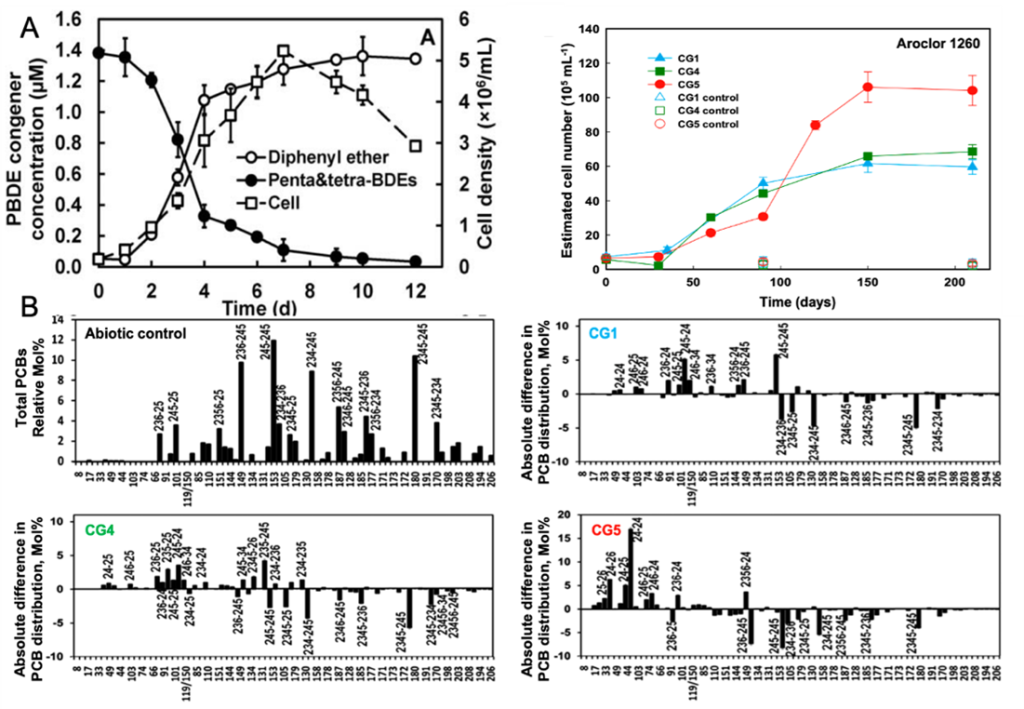
Image 1: Debromination of tetra- and penta-BDE congeners by D.mccartyi strains GY50 (A); dechlorination of Aroclor 1260 by D.mccartyi strains CG1, CG4 and CG5 (B).
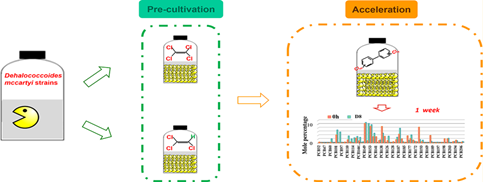
Image 2: Graphical scheme for scaling up the dehalogenating cultures
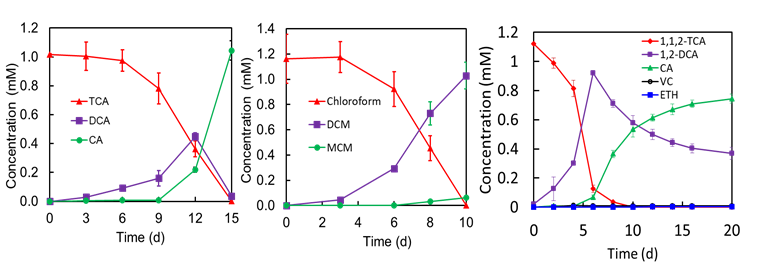
Image 3: Dechlorination of TCA and chloroform by Desulfitobacterium sp. strain PR
For more details, please contact:
Prof He Jianzhong
Email: ceehj@nus.edu.sg

